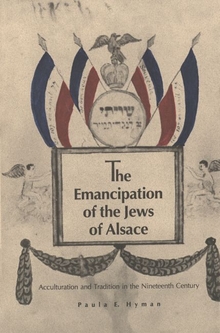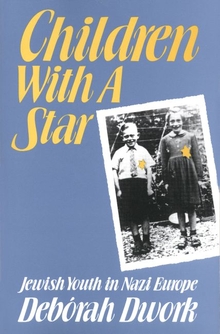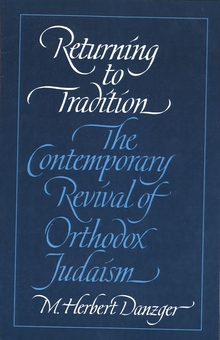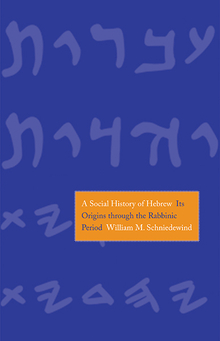The Emancipation of the Jews of Alsace
WARNING
You are viewing an older version of the Yalebooks website. Please visit out new website with more updated information and a better user experience: https://www.yalebooks.com
Acculturation and Tradition in the Nineteenth Century
Paula E. Hyman
European Jews achieved civil emancipation during the nineteenth century, becoming equal citizens with all the rights and responsibilities of their Gentile compatriots. This book explores for the first time the impact of this emancipation on a traditional Jewish population largely untouched by secular culture. Focusing on the Jews of Alsace, Paula E. Hyman explores their patterns of acculturation and integration in both countryside and city, analyzing the political, social, and economic factors that not only reshaped their behavior and self-understanding but also sustained their traditional Jewish practice.
Drawing on governmental sources, literature, memoirs, and communal records, Hyman relates the experiences of ordinary Jews—the cattle dealers, peddlers, and shopkeepers who lived in the villages and small towns of Alsace. She finds that these Jews resisted new outlooks and new spheres of activity, and that their transformation was far slower and more uneven than the rapid acculturation of Jewish urban elites discussed by previous historians. Hyman describes the Alsatian Jews’ emergence from cultural and social isolation, the impact of migration and urbanization, their drift from religious orthodoxy, and the alliance of their community leaders with French authorities. Since European Jews were a largely rural population until after mid-century, Hyman’s social history of a typical village society has important implications for understanding the development of Jewish modernity throughout Europe
"One of the richest accounts of Jewish modernization that I have ever read. Hyman's book will dislodge some common assumptions about emancipation, assimilation, and religious loyalties in modern Jewish history."—Todd M. Endelman, University of Michigan
"An illuminating study. . . . This well-written book, with excellent notes and bibliography, is a must for anyone wanting to know more about the effects of modernization on rural Jews."—Choice
"[A] fine book . . . This book makes a very important contribution to the field of Franco-Jewish history for it presents a profile of Alsatian Jewry in its entirety while also providing a perceptive analysis of the way Alsatian Jews developed their postrevolutionary identity. The book also has a broader significance as a corrective to most previous studies of West European Jewry in the modern era."—Lee Shai Weissbach, American Historical Review
"Hyman offers a wealth of relatively solid, factual information, challenging anecdotal or traditional interpretations. . . . [Her] style is clean, jargon-free, and sober. . . . This volume is a fascinating and valuable contribution to scholarship."—Albert S. Lindemann, The Historian
"Hyman has made a significant contribution to our understanding of Jewish history in the modern period, offering us an important reminder that processes of social change have a more complicated path than meets the eye."—Richard I. Cohen, Jerusalem Report
"Social history at its very best and most persuasive. . . . An elegantly written, persuasively argued, well-documented work of history. It will surely become the classic work on the social transformation of the Jews in the wake of emancipation."—Marsha L. Rozenblit, Journal of Modern History
"A thoroughly researched and carefully reasoned work the breaks new ground in French Jewish historiography and offers the student of Jewish history a critical model for analyzing trends of acculturation and integration in the nineteenth century."—Jonathan Helfand, SHOFAR
Publication Date: October 23, 1991








